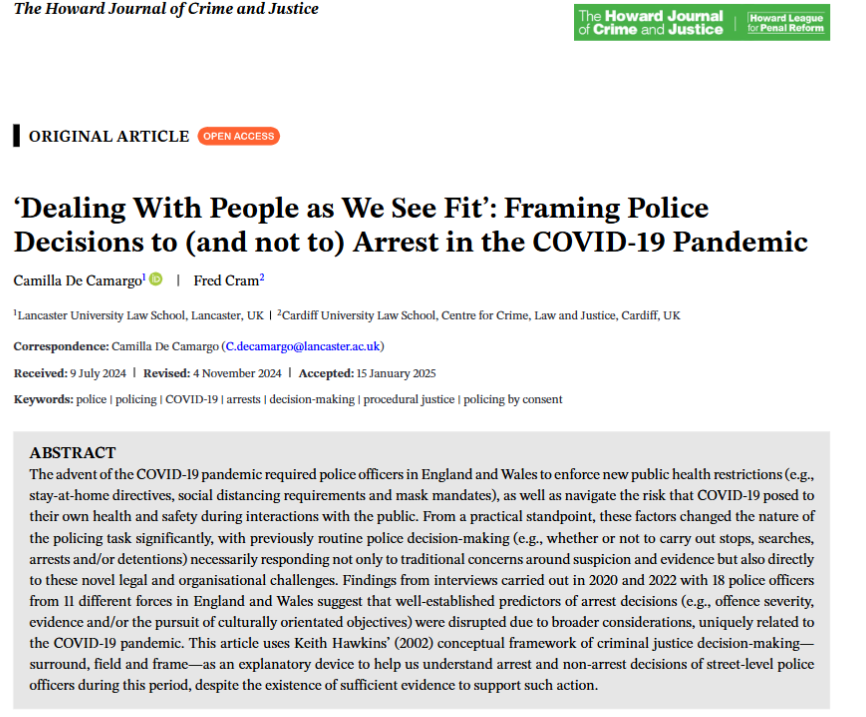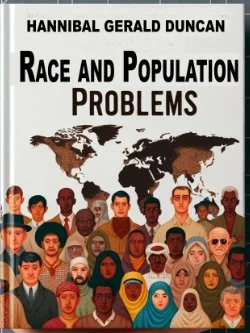By Camilla De Camargo, Fred Cram
The advent of the COVID-19 pandemic required police officers in England and Wales to enforce new public health restrictions (e.g., stay-at-home directives, social distancing requirements and mask mandates), as well as navigate the risk that COVID-19 posed to their own health and safety during interactions with the public. From a practical standpoint, these factors changed the nature of the policing task significantly, with previously routine police decision-making (e.g., whether or not to carry out stops, searches, arrests and/or detentions) necessarily responding not only to traditional concerns around suspicion and evidence but also directly to these novel legal and organisational challenges. Findings from interviews carried out in 2020 and 2022 with 18 police officers from 11 different forces in England and Wales suggest that well-established predictors of arrest decisions (e.g., offence severity, evidence and/or the pursuit of culturally orientated objectives) were disrupted due to broader considerations, uniquely related to the COVID-19 pandemic. This article uses Keith Hawkins’ (2002) conceptual framework of criminal justice decision-making—surround, field and frame—as an explanatory device to help us understand arrest and non-arrest decisions of street-level police officers during this period, despite the existence of sufficient evidence to support such action.
The Howard Journal of Crime and Justice Volume 64, Issue 3 Sep 2025 Pages 277-417





















